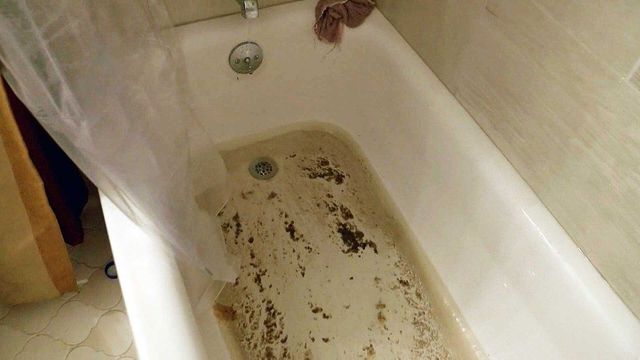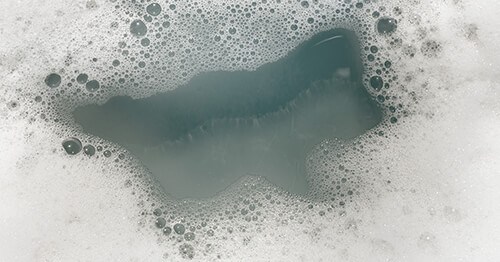Investigating the Phenomenon of Drainage Rising Through the Bathtub
Investigating the Phenomenon of Drainage Rising Through the Bathtub
Blog Article
Nearly everybody maintains their own individual rationale with regards to What To Do If Sewage Starts Backing Up Into the Shower.

Sewage back-up in the bathtub can be a stressful and unsanitary problem for any kind of house owner. Not just is it inconvenient, yet it likewise poses significant health risks and shows underlying concerns with the plumbing system. Understanding why sewage is showing up with the bath tub is vital for taking suitable activity to deal with the trouble efficiently.
Intro to the Problem
Common Factors for Sewer Back-up
Clogs in the Drain Line
Among the most common sources of sewer back-up is a clog in the sewer line. This can happen because of the buildup of particles, oil, or foreign items in the pipelines, protecting against appropriate circulation and triggering sewer to back up into your bathtub.
Tree Origin Breach
Tree origins seeking moisture and nutrients can infiltrate sewage system lines via tiny splits or joints. Gradually, these origins can expand and increase, creating substantial damages to the pipelines and causing sewage backup concerns.
Recognizing the Issue
When sewer draws back up right into the bath tub, it's a clear indication of an issue with the water drainage system. The wastewater that should be streaming away from your home is rather finding its back into your living space, which can bring about considerable damages and carcinogen.
Prospective Reasons
Numerous elements can contribute to sewage backup in the bath tub. From obstructions in the drain line to problems with the plumbing facilities, recognizing the root cause is necessary for finding a solution.
Aging Framework
Older homes might have outdated plumbing systems that are a lot more vulnerable to rust, cracks, and damage. As pipes age, they come to be extra susceptible to leaks and obstructions, boosting the probability of sewage backup incidents.
Heavy Rainfall or Flooding
Throughout periods of heavy rainfall or flooding, the drain system may end up being overwhelmed with excess water, causing back-ups and overflows. This can cause sewer supporting into bathtubs and various other components inside the home.
Indications of Sewage Back-up
Foul Odors
Undesirable odors originating from drains pipes or fixtures, specifically in the shower room, might suggest sewage back-up problems. These smells are frequently solid and relentless, indicating an issue that calls for immediate attention.
Slow Draining Fixtures
Bathtubs, sinks, and commodes that drain gradually or not whatsoever could be experiencing sewage backup. If numerous components are affected all at once, it's likely that the issue stems from a typical point, such as the primary sewage system line.
Gurgling Sounds
Strange gurgling or gurgling sounds coming from drains pipes when water is running in other places in your house are a sign of air caught in the plumbing system. This air buildup can result from sewage backup and need to be explored promptly.
Health Threats Connected With Sewage Backup
Contamination of Water System
Sewage backup can pollute the water system in your home, positioning a severe wellness threat to you and your household. Exposure to contaminated water can lead to gastrointestinal concerns, skin infections, and other illnesses.
Mold Development
Moisture from sewage back-up can produce optimal problems for mold development in your house. Mold spores can worsen respiratory issues and cause allergies in delicate people, making prompt clean-up crucial.
Spread of Condition
Sewage has dangerous microorganisms, viruses, and parasites that can create a series of conditions, consisting of liver disease, cholera, and gastroenteritis. Entering contact with sewer or contaminated surface areas places you in danger of infection.
Tidying up After Sewage Back-up
Sanitation Procedures
Extensively sanitize and sterilize influenced areas after sewage back-up to remove hazardous germs and prevent mold growth. Use suitable cleansing items and safety gear to ensure secure and efficient clean-up.
Repair of Influenced Locations
Fix any kind of damages to floor covering, walls, or fixtures triggered by sewer backup. Depending on the extent of the damage, you might need to replace carpeting, drywall, or other products to restore your home to its pre-loss problem.
Immediate Actions to Take
Switching Off Supply Of Water
In the event of sewage back-up, it's necessary to turn off the water system to avoid additional contamination and damages. Find the major water shutoff valve in your house and closed it off until the problem can be solved.
Speaking To a Professional Plumber
Dealing with sewage back-up is not a do it yourself work. Get in touch with an accredited plumber with experience in dealing with sewage-related issues to analyze the scenario and execute needed repair work or cleanups.
Preventing Contact with Infected Water
Up until the sewer backup is solved, prevent contact with infected water to prevent the spread of germs and pathogens. Put on safety gear if you have to be in the damaged location and wash your hands extensively afterward.
Preventive Measures
Normal Upkeep of Drain Lines
Arrange regular evaluations and upkeep of your sewer lines to determine and resolve potential problems before they rise right into major problems. This can consist of cleaning out particles, inspecting for tree origin breach, and repairing any kind of broken pipelines.
Installing Bayou Shutoffs
Consider setting up bayou shutoffs in your plumbing system to prevent sewage from flowing back right into your home throughout durations of heavy rainfall or flooding. These shutoffs instantly close when water draws back up, securing your residential or commercial property from contamination.
Correct Disposal of Family Waste
Stay clear of flushing anything apart from bathroom tissue and human waste down the toilet to avoid clogs and obstructions in the drain line. Dispose of grease, oil, and other household chemicals properly to lessen the danger of plumbing issues.
Why Is Water Backing Up in My Bathtub When I Flush My Toilet?
What to do about a sewer line clog
First, don’t bother with plunging. No amount of plunging will dislodge the clog in a sewer line. The clog is too far away. Plungers are for clogs in the toilet itself, not the sewer line. Plus, the most likely causes of a sewer clog are:
Tree roots Flushed toys or feminine products Grease buildup Those items don’t move easily. And in the case of tree roots, the roots need to be cut out of the pipe and the pipe will need to be repaired.
You’ll need a closet auger. A closet auger is a type of plumber’s snake with a protective cover to keep from scratching the delicate porcelain toilet. If the clog is further down, you may need to remove the toilet or use one of your cleanouts to get to the clog.
We also recommend doing a video inspection of the drain to ensure that the cause of the clog has been completely removed. Otherwise, you could have the same problem again in a few days or weeks.
https://mspplumbingheatingair.com/blog/why-is-water-backing-up-in-my-bathtub-when-i-flush-my-toilet

We had been introduced to that report about Why is Sewage Backing Up Into My Bathtub? from an acquaintance on a different website. Are you aware of anybody else who is excited about the niche? Feel free to share it. Thanks for taking the time to read it.
Estimate
Report this page